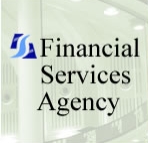FSA Japan Forex Brokers
Do you need to find the best FSA Japan regulated brokers? Not only can our experts provide you with a hand-picked list of the very best brokers regulated by FSA Japan, but we’ll also explain who the regulator is, what they do, and what you should do to verify that your broker is legitimate.
When it comes to trading, it is important to consider picking a broker which is regulated in your country of residence. This is because it will be the best way to protect yourself and your investment. But finding out about the relevant regulations isn’t always as easy as it seems.
Each country has a regulatory body in charge of overseeing financial services in your country. If you live in Japan, the regulatory body is the Financial Services Agency – Japan. Which means you need to be looking for FSA Japan regulated brokers.
Here’s our list of the best FSA Japan regulated brokers:
- Alpari
- HotForex
Best forex brokers regulated by FSA
If you want to know the very best brokers regulated by FSA Japan, check back regularly as our experts are constantly analysing the market.
At the moment, here are some of our most highly recommended FSA Japan regulated brokers:
- Alpari
- HotForex
Are FSA Japan regulated brokers safe?
Forex markets suffered a bit of an upset last year when the Swiss National Bank ended the Swiss Franc’s peg to the Euro. The pegging of the Euro to the Swiss Franc was originally done to keep the EUR/CHF at the level of 1.2000. Along with its promises to defend the peg, such actions prompted a number of traders to set long orders on the EUR/CHF at 1.2000.
Unfortunately, the cost of maintaining the peg increased significantly leading to it being abandoned. Within a matter of a few seconds, close to 3000 pips were lost.
Such a high level of slippage led to brokers and traders taking out stops and losing large amounts of money – especially brokers who were offering leverage of up to 500:1. This upset in the forex market led to many regulators rethinking leverage and margin.
FSA Japan brokers were able to weather the storm much better because the agency had already reigned in the amount of leverage a broker was able to offer its clients. The FSA Japan also introduced a number of other measures:
Offshore brokers were prevented from soliciting Japanese investors
Japan has decided to follow the example of the USA and is trying to prevent offshore brokers from attracting Japanese clients. This isn’t the easiest of things for the FSA to do because it appears an ever increasing number of Japanese investors are actively seeking offshore brokers to trade with. They are choosing to do this to take advantage of lower margin requirements and higher leverage. In an effort to combat this problem, the FSA Japan is co-operating with other regulatory bodies to make sure offshore brokers don’t attract clients from Japan.
The Japanese FSA is encouraging offshore brokers to establish local offices
Following on from the above point, the FSA in Japan is encouraging offshore providers that want to attract Japanese clients to establish branches in Japan and obtain FSA Japan licenses.
What is FSA Japan?

It is also responsible for managing the stability of financial services in Japan and preventing the manipulation of the market. If issues of non-compliance are uncovered, it can initiate surveillance and investigation.
The FSA Japan was originally established as an administrative body but in 2001 it became the external representative of the Cabinet Office of Japan. The Financial Reconstruction Commission was wound down, and all aspects relating to failed financial institutions became its responsibility as well.
What does the FSA Japan do?
The Financial Services Agency Japan is responsible for ensuring the stability of the country’s financial system. It also has responsibility for protecting depositors, insurance policyholders and security investors. It takes its responsibilities very seriously and ensures its aims are met with measures such as planning and policy making in relation to the financial system, supervision, and inspection of private sector financial institutions, and surveying securities transactions.
The FSA Japan also does the following:
- Establishes rules for market trading
- Establishes business accounting standards
- Supervises certified public accountants and auditing firms
- Participates with international organizations to develop consistent financial administration
- Ensures compliance with the rules in the markets
What is likely to happen in the future for traders in Japan?
The Japanese Financial Services Agency continues to work towards its aims and is currently communicating with other regulators to deter regulated brokers from attracting Japanese clients.
ASIC, the Australian regulatory body, has already implemented a ruling. Are Japanese traders happy about these developments? Not very likely, as it means there are fewer choices. And the future situation is still very much unclear. But we will keep you informed of any developments.
Making a complain to FSA Japan
From time to time, you may need to lodge a complaint with FSA Japan. Luckily, they make the process very straightforward.
First, make your way to the official FSA Japan website. In a section named ‘Ask J-FSA’, you’ll find reams of website links giving you plenty of information on common queries and in-depth stuff, too. However, you’re also welcome to get in touch to clarify any area of financial law.
Contact FSA Japan either by post or email and they’ll try to help you resolve your issue as soon as possible.
How to find out whether a broker in Japan is regulated by the FSA Japan
When you are choosing a forex broker and want to be sure they are FSA regulated, the first place to look is the broker’s website. At the bottom of the first page, you will generally find the operator’s license details.
Of course, not all brokers do this, and there are those that list false information. Which is why you should perform due diligence and undertake a check yourself.
Finding out whether a broker in Japan is regulated by the FSA is a simple case of visiting the agency’s website and looking for further details. The process isn’t as easy as some other regulatory bodies as it involves looking through a list. But spend a few minutes perusing the lists and you can consider it time well spent.
There is also a list of names, persons, and companies who have been found conducting financial instruments business without the correct license.


